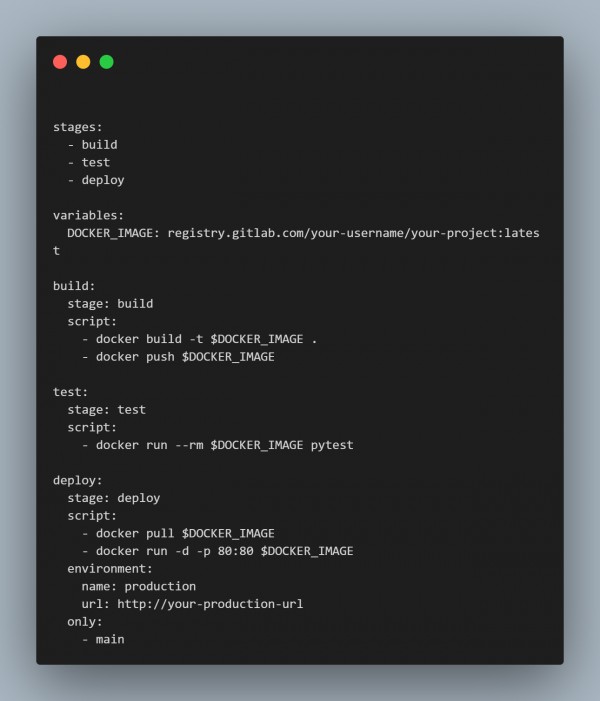For a tool for the automation of CI/CD pipeline deployments, I find Jenkins, GitLab CI/CD, or AWS CodePipeline useful because they scale and offer multiple integrations in several ecosystems, giving flexibility. Below, we are going to cover each one with an example practical configuration with GitLab CI/CD:
CI/CD Tool Options:
-
Jenkins: An open-source, highly customizable tool with full plugin support, making it ideal for configuring complex pipelines. It supports parallelization and integrates seamlessly with Docker, Kubernetes, and more.
-
GitLab CI/CD :GitLab CI/CD is the tool that is natively part of GitLab and pretty convenient for repositories hosted on GitLab. It supports YAML-based configuration and has full features, including auto-scaling runners.
-
AWS Code Pipeline: It has a fully managed CI/CD service that works very well with other AWS services. But the AWS Code Pipeline is a good choice for auto-deploy, which is wanted in an AWS-centric environment.
Here’s a sample .gitlab-ci.yml file that automates deployments using GitLab CI/CD with Docker:

In this pipeline
Build The application will be built as a Docker image and pushed onto the GitLab container registry.
-
Test: The image is pulled and tested using pytest in a container.
-
Deploy: As long as it is deployed into the production environment, the environment variables are in place for easy manipulation.
This means that the previous stage should be successful for any stage to execute. It makes the deployments much more reliable. Tools such as GitLab CI/CD facilitate the automation of many processes related to deployment and also with version control and containers registries through powerful integrations.
If you're looking for a better career, I personally suggest you take the DevOps Post Graduate Program!
 REGISTER FOR FREE WEBINAR
X
REGISTER FOR FREE WEBINAR
X
 Thank you for registering
Join Edureka Meetup community for 100+ Free Webinars each month
JOIN MEETUP GROUP
Thank you for registering
Join Edureka Meetup community for 100+ Free Webinars each month
JOIN MEETUP GROUP